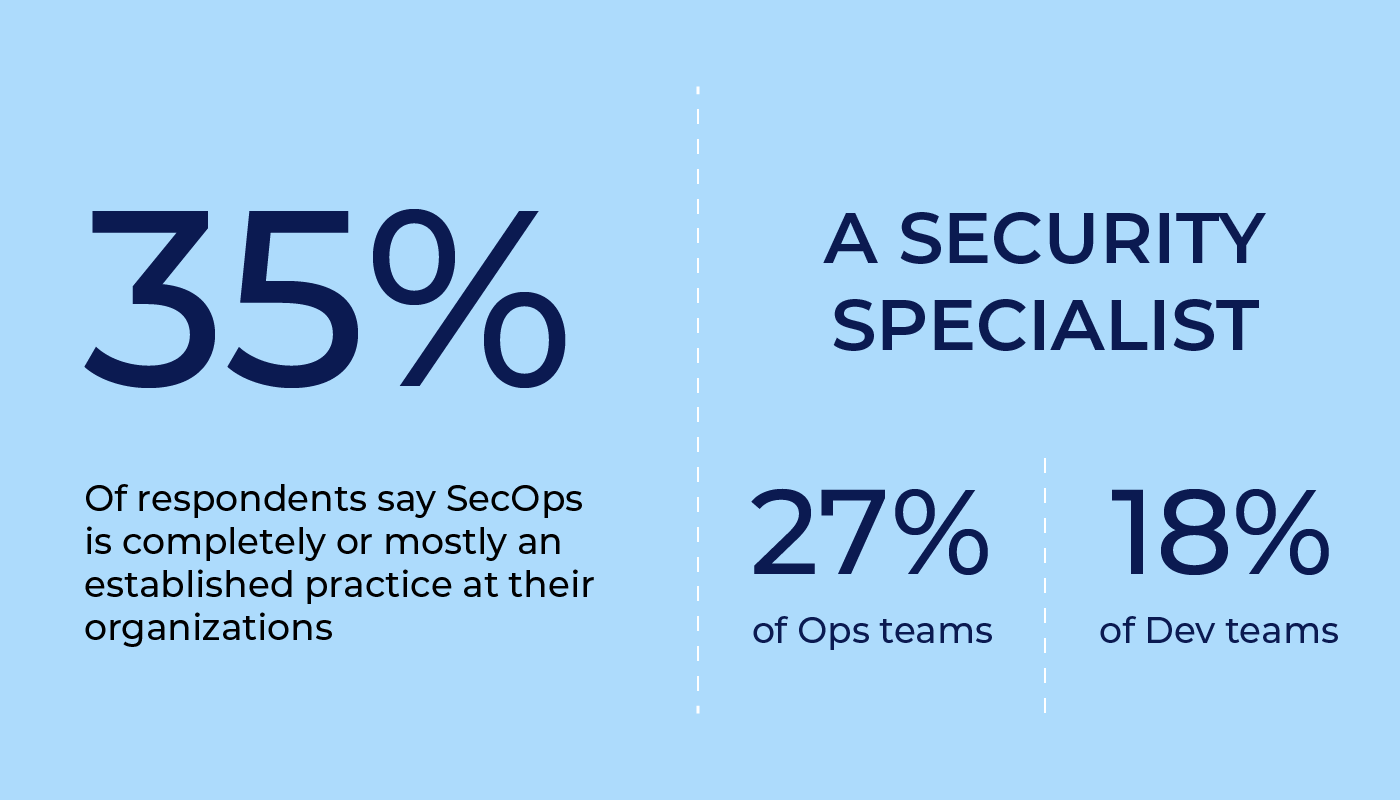How much does a data breach cost? According to the Ponemon Institute report, organizations experiencing massive data leakages should prepare to pay as much as $3.84 million.
With 300 million breaches globally, this figure is expected to grow, which represents alarming statistics for companies across all sectors.
New fields appear in response to the growing concerns over privacy and security. SecOps and DevSecOps have matured into separate directions that aim to integrate security into every stage of the development process. More on SecOps and DevSecOps, security challenges, and best practices ― read in our article.

SecOps and DevSecOps ― Evolving Concepts
Although the concepts of SecOps and DevSecOps were introduced to the tech world a few years ago, it remains a buzzword in most organizations.
Paul Hidalgo, a Cloud Business Leader, delivered a speech on “Practical DevSecOps: How to Continuously Adapt to Threats” in late 2018. Despite the fact that SecOps was introduced as a new movement a long time ago, only a few companies managed to integrate it into their operations.
Before we move on to discussing use cases and the best SecOps and DevSecOps practices, let’s cover the basics:
SecOps is a movement that aims to integrate security practices into IT operations to help an organization mitigate critical risks at the earliest stages of the development process.
Similar to DevOps, SecOps helps companies automate security tasks and integrate them into an entire product lifecycle. You no longer need to wait until the app is developed and prepared for QA. SecOps is designed to make security and operation teams work together in order to ensure no threats or vulnerabilities pop up at the deployment stage.
DevSecOps is a cultural change that takes place when your security, operations and development teams are synchronized.
Tight cooperation between all parties is essential to ensuring you get a quality product that will provide users with secure experience. When teams just have a vague idea of what happens on the other side of the product development lifecycle, they might miss security gaps or bugs which will eventually result in data loss.
DevSecOps is designed to ensure you mitigate risks early on and deliver products ready to be launched on the market.
Benefits of DevSecOps to Your Business
In times of pandemic when every single company moves online, having security integrated into operations and development becomes paramount.
Implementing SecOps in your company might be rewarding. If handled well, it will bring a bunch of benefits to your business, such as:
- Greater Observability. You are always aware of what’s going on at every stage of the app delivery process. Information and knowledge exchange are reinforced, which means your team can build better cooperation to deliver positive results.
- Improved Agility. DevSecOps is a methodology that complements the agile approach and encourages collaboration between teams. To maximize business benefits provided by Scrum or Agile, you should opt for DevSecOps and observe how your processes transform into a well-structured and comprehensive system.
- Traceability. When security is implemented at every stage of the development process, you can keep track of all the operations and prove everything you deliver meets security practices and can be verified by all the participants.
- Compliance. This point becomes critical to specific industries like banking, fintech, healthcare, public and similar ones. In case your application has to comply with industry standards, you should be sure they are built in the development process from Day 1. And DevSecOps perfectly copes with this task by providing confidence that your product will meet the requirements.
How DevSecOps Works
DevSecOps is not a single practice that you can add to your workflow at any point of the development process. It is a philosophy that integrates security practices into each stage of the product development lifecycle:
- Idea. Your application begins with well-formed user stories, which need to be understandable by the development team and meet the client’s requirements.
- Coding. Test-driven development, pair programming, and other security practices are integrated into coding to ensure you enjoy greater transparency, and no vulnerabilities can hide from the developer’s eye. All these activities aim at mitigating bugs and errors at the coding level.
- Build Phase. When it comes to building software, there is also a set of practices your DevSecOps team can apply to reach higher levels of security.
In particular, linting, a static code analysis tool used to analyze the code and flag potential issues, is implemented to ensure you integrate the best coding practices. Scanning is one more practice that is infused to check if there are any loops or vulnerabilities that can appear later on in the production stage.
- Deploy. Deployment is probably the most important step in the product development lifecycle. When any changes are released to production, notary services are introduced to ensure that images that are being deployed reflect the same images that were created at the build stage.
- Manage. Error detection does not end at the deployment stage. It is vital to continuously monitor software performance to ensure containers do not spark vulnerabilities or inefficiencies that were not detected at the build or deployment stage.
- Maintain. After your product hits the market, it is the right time to monitor its performance and ensure it complies with the latest security practices. It is a continuous process of updating your software and checking it for new vulnerabilities.
To Wrap Up
If you haven’t implemented security practices in DevOps, it is the right time to do so. With increased digitalization rates and warning statistics on cybercrimes, businesses should be prepared to tackle new challenges and adapt their process to the changing business environment. Contact LITSLINK for professional consulting services, and we will come up with a SecOps and DevSecOps solution to suit your custom development needs.